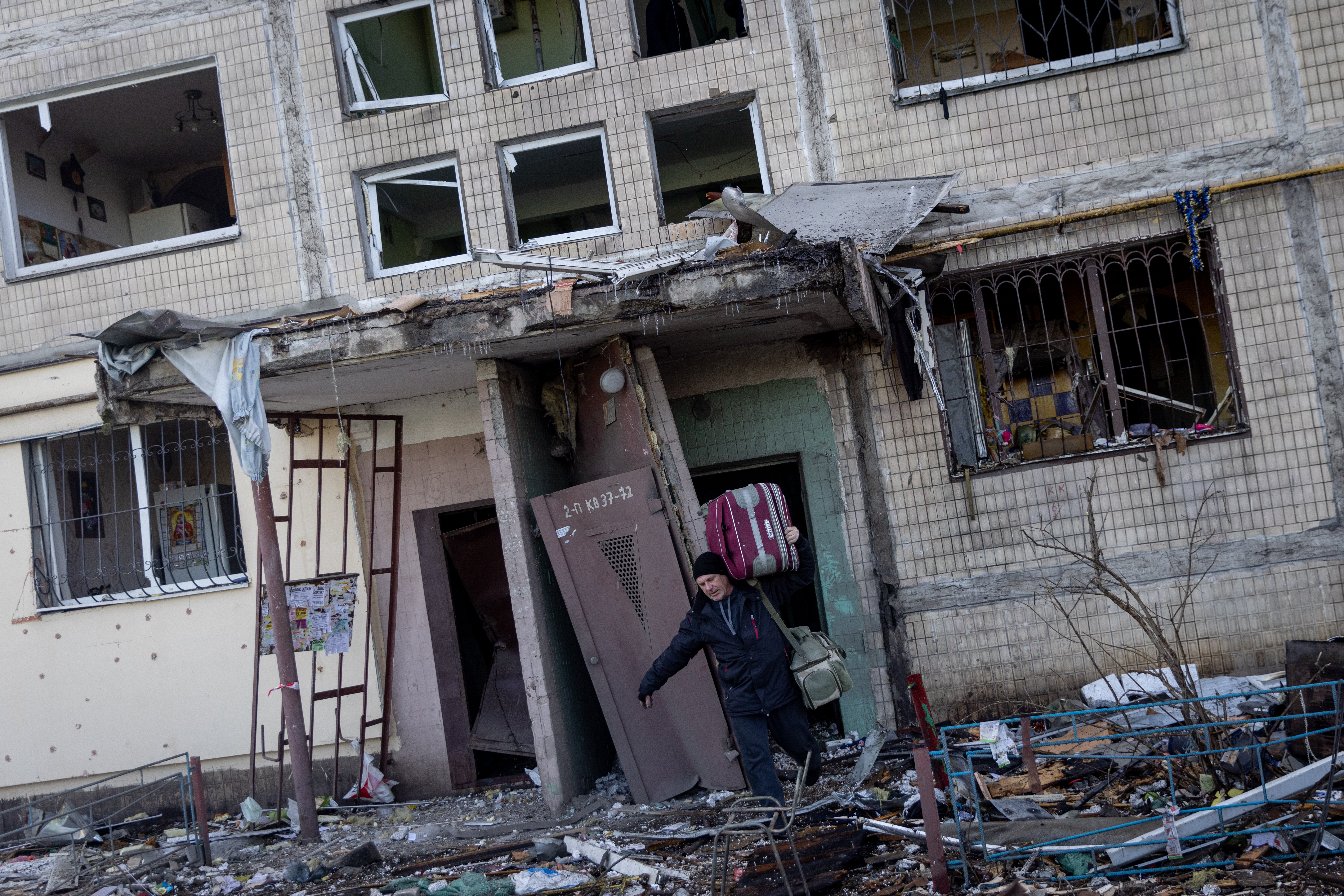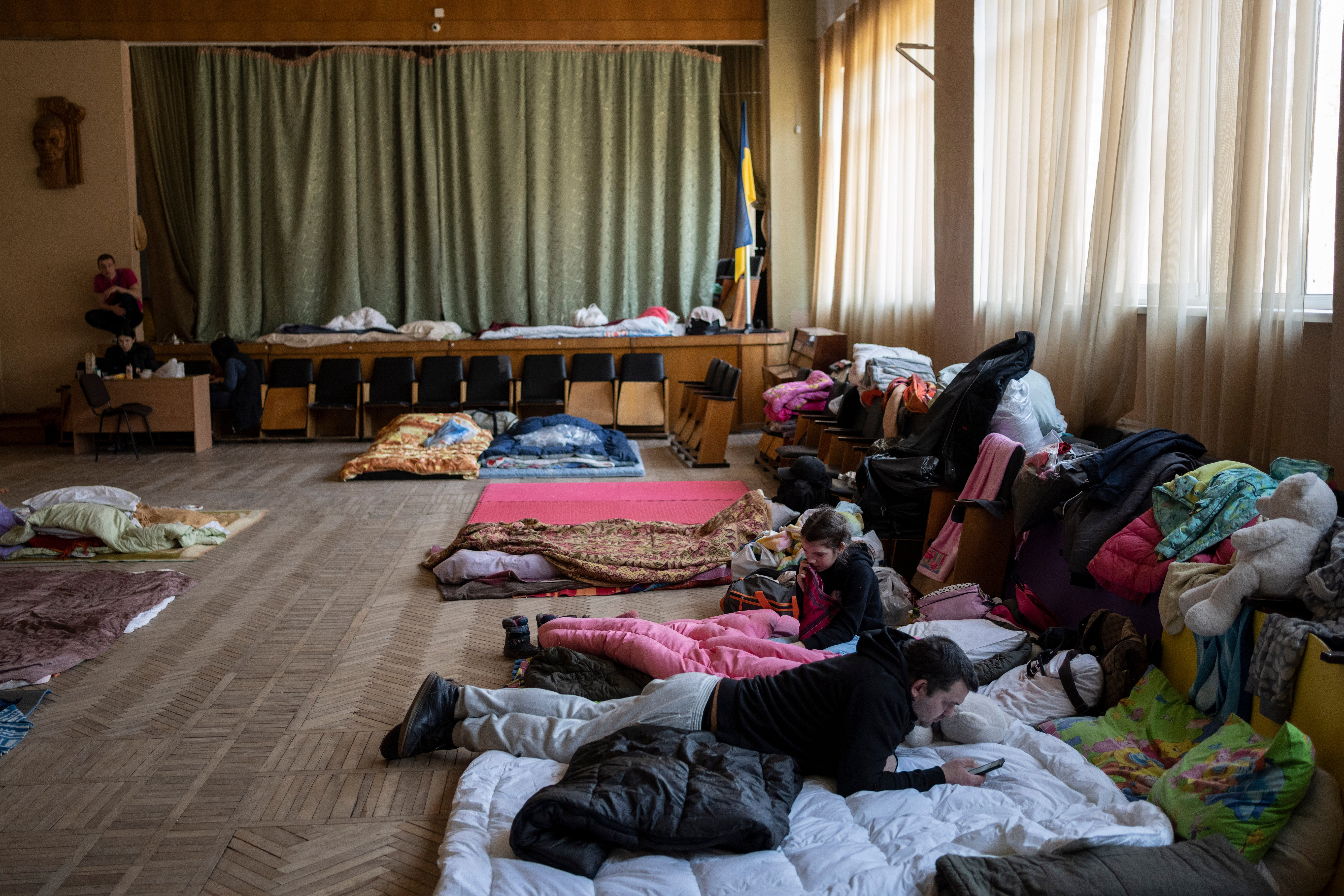
BBC presenter Clive Myrie has opened up about the moment that he shed a tear during a TV report from Kyiv, Ukraine.
“It had been an emotional day,” he said. The reporter was presenting the News at 10, live from the Ukrainian capital the day after the Russian invasion began, when a tear streamed down his cheek during the broadcast.
Viewers quickly sprang to support the presenter, but he has now revealed that - although he was wracked with empathy for the Ukrainian people - he wasn’t crying for the country.
“I had flown into Kyiv 12 hours before the invasion began,” Mr Myrie told the Behind the Headlines podcast. “The capital was bustling, it’s quite a young population in the centre of the city, great restaurants, people all out, the sun was shining. It was a beautiful day and then this war starts.”
He said news of the invasion brought to mind the past atrocities committed by Russian forces. “It struck me that it was going to be a horrible conflict. Especially after the levelling of Grozny in 1999 and the widespread devastation of parts of Syria by the Russian military.”
He contrasted what he knew was to come with “what I had seen the day before, a lively bustling city”.
Mr Myrie continued: “It had been an emotional day and I was standing on the rooftop of the hotel where we were broadcasting. And it was frankly windy... And the wind blew across my face and through my eyes. And the single tear came out. So I am not saying that I was crying for Ukraine - because the wind was blowing. What I will say is that it was an emotional day, and that’s it.”
Clive Myrie was interviewed for Headlines Network’s Behind the Headlines podcast, which speaks to journalists about how they have managed their mental health on the job.
Asked what he made of journalists becoming heroes, Mr Myrie told presenters Hannah Storm and John Crowley: “From my perspective it’s nonsense... we’re not trying to be heroes. We’re just doing our job.”

Going to a war zone “is a free choice”, he continued. “It’s vital that you are not compelled to work in a hostile environment, because if you are not feeling comfortable in yourself in that kind of stressful situation then that’s when you start, potentially, making mistakes.”
Clive Myrie and his BBC colleagues Lyce Douset, Jeremy Bowen and others have received praise for their brave reporting in Ukraine, with Mr Myrie reporting the News at 10 live from a basement in Kyiv because it was too dangerous to be out on the streets.
In one memorable moment, Clive Myrie and Lyce Douset had to take a break from their live broadcast from a Kyiv rooftop to put on flak jackets after an air raid siren sounded in the capital.
But despite taking risks in his work, Mr Myrie, who is a trustee for the Rory Peck Trust, a charity that supports freelance journalists working in crisis zones, insisted: “No story is worth dying for.”
He told the podcast: “I have a family, I have friends, I have people who love me... I’m not willing to take a risk that I do not feel is justified, and one that has not be calculated to the nth degree for any story.”
He said he was intending to head back to Ukraine soon “refreshed and reenergised”.
Speaking about what is driving him to return to the warzone, Mr Myrie said: “You’re just trying to tell the truth of the story.. and in the age that we live in, try to knock down some of the crap that appears.”

Headlines Network was launched in 2021 to promote more open conversations about mental health in journalism, and offer tips and training.
Behind the Headlines podcast is hosted by Headlines Network’s directors, journalists Hannah Storm and John Crowley.
In each episode, they speak with colleagues from across the news industry who share their experiences, the challenges they have faced, how they have managed their mental health, offering their insights into why journalism matters and why journalists do too. Previous episodes have featured Lyse Doucet and Lindsey Hilsum and Sian Williams.
The Independent has a proud history of campaigning for the rights of the most vulnerable, and we first ran our Refugees Welcome campaign during the war in Syria in 2015. Now, as we renew our campaign and launch this petition in the wake of the unfolding Ukrainian crisis, we are calling on the government to go further and faster to ensure help is delivered. To find out more about our Refugees Welcome campaign, click here. To sign the petition click here. If you would like to donate then please click here for our GoFundMe page.







